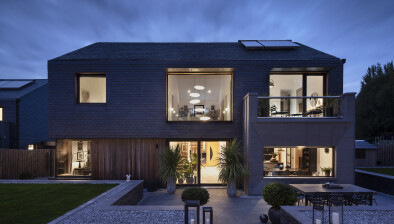Blog: The Positives of Mediation in Planning

Archie Waters from The Dispute Centre provides a piece for the Scottish Alliance for People and Places about the potential role of mediation in the planning system.
Criticisms aimed at the ‘Planning Process’ often suggest that it is remote, inwardly focused and insensitive. Although there are systems for representation, the planning authorities are accused of being a ‘power unto themselves’. This image tends to leave people with the feeling that it isn’t worth challenging proposed developments, making them less likely to become involved in seeking to have their views represented. We potentially, therefore, lose valuable input and knowledgeable opinion that could beneficially contribute to planning outcomes.
Not all planning decisions prove to be popular or meet their expectations. Disputes can and do arise before, during and after the process. Providing some form of conciliatory recourse as part of a statutory provision would seem favourable and mediation, built in at all levels, would seem to be worth serious consideration.
Mediation is a very empowering process in that it provides a platform for people to be openly heard and have their views taken seriously. It also allows for mutually accepted agreements to be legally binding through written agreement. And that is a powerful incentive for people to become involved.
A mediator is, in essence, a neutral third party who aims to lead the various parties involved in a dispute to a mutually agreeable resolution. Said parties make any agreement themselves and it is this process of joint settlement that lends itself to generating one of the unique benefits from the mediation. That is, the potential for good and workable relations to be engendered or re-built after tensions have adversely affected relationships. The reinstatement of trust and empathy between planners and the public, where issues have created tensions, can only be of value and bode well for the future.
The principles of mediation can also be applied functionally before any serious issues arise; preventing unnecessary conflict from occurring in the early stages. Active mediation methods applied to public meetings, for example, can provide stability and organisation where the ‘stakes are high’. Knowing that a meeting was to be controlled, balanced and meaningful would help ensure members of the public feel more secure about attending. It would thereby serve to increase levels of inclusion.
The structure of the mediation process has another potentially valuable benefit that fits well with the principle of creating an engaging, collaborative and consensual planning system. This is the flexibility and adaptability it can afford to include significant numbers of people, campaign groups or other interested parties in large mediated discussions and workshops.
Where past planning decisions have failed communities and disputes subsequently arise, mediation would also be available as a tool to help provide some redress. Deeply involved cases could be mediated upon to establish routes to resolution that would suit all parties.
Clearly, the benefits of mediation being an integral part of the planning process are considerable, including the prevention and early settlement of issues, reduction in delays and costs caused by disputes, inclusion – capturing broader input and, ultimately, the achievement of more appropriate planning outcomes. Its ability to functionally and constructively engage people from the onset of the development of their living spaces would appear significant, as would its inclusion as an integral element of the planning process.
This blog first appeared on the Scottish Alliance for People and Places website.

















